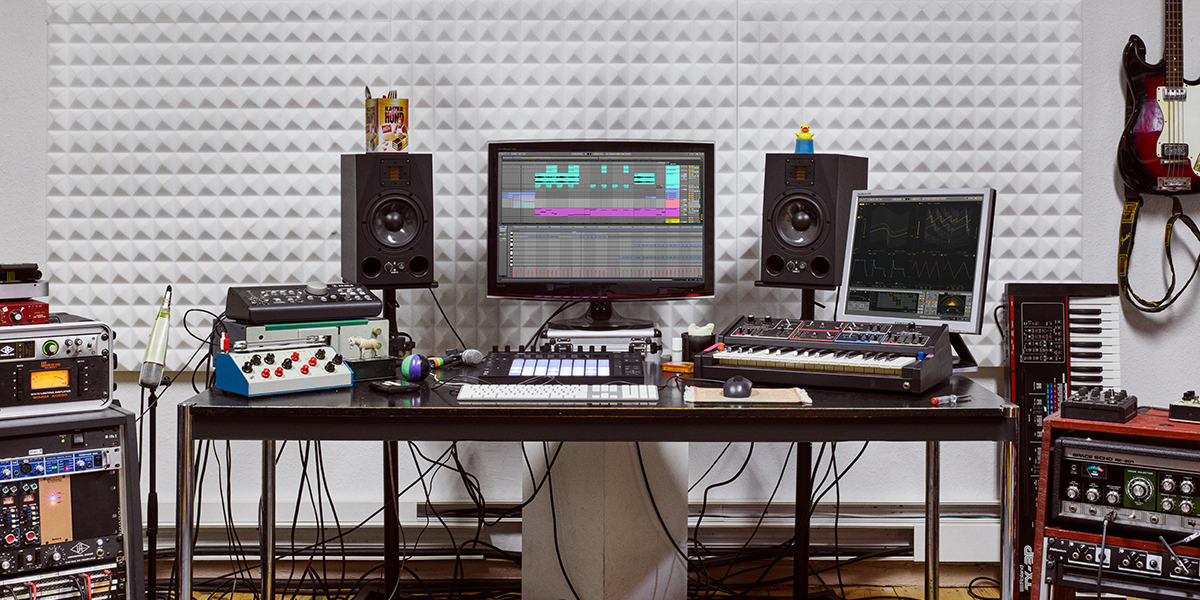Ableton Performance On Mac Vs Pc
Mac vs PC for music production. Whether you choose a Mac or PC for music production is largely down to the platform you prefer and who you're collaborating with. There's little inherent advantage. Nov 06, 2019 Any idea on the percentage of Ableton users on PC vs Mac? I did my sums and research and many creative were saying the DELL PRECISION 5520 was a better machine than the Mac when I bought it, and had double the everything (32GBRAM, Xeon, 1TB SSD, touch screen, infinity edge etc. For same price as Mac Pro. Sep 11, 2013 Mainstage vs Ableton is a tough one to answer. /download-scratch-live-skin-for-virtual-dj.html. Each artist uses their rig for different reasons. Since I am more of an old-school keyboardist from the Analog days, and i'm just now comfortable with programming and using Midi Controllers with Mainstage 2.2, I might stick with Mainstage, and use Ableton as a slave to perform with my DJ partner. While Mac hardware and software is denoted by its stability, the difference here has lessened. The odds of getting a virus or malware with a PC remain higher than with a Mac, but this is more about the numbers game than technology. About 7.5% of the computers in use are Mac, according to IDC, so hackers spend more time and creativity attacking PCs.
Ableton Live software is a powerful, flexible environment for creating, performing, and producing music. This unique software demands an equally unique control instrument. Akai Professional and Ableton are proud to present the APC40: the Ableton Performance Controller. When comparing Ableton Live vs Bitwig Studio, the Slant community recommends Bitwig Studio. The Bitwig DAW runs on Mac, PC, and, Linux. Bad performance when. Before we get into this section, a note: you can never really discuss audio production without starting a fight about PC vs Mac. Now, there are two reasons that our article will be entirely focused on PC. First, of course, Logical Increments is a research and information site about building PCs, and that is what all of our resources are about.
Ableton Performance On Mac Vs Pc Laptop
I made AdamJay's test on my new PC laptop at work: a Siemens Centrino 1.5 Ghz, 512 RAM. The test file that was running at 80% on my iBook was running at 27% only on the PC!!! Well, I was ready to switch back to the PC world again :-)
Macbook Pro Vs Pc
So I imported my sets to the PC and I was surprised to see almost no difference in the CPU load for some of my sets !!! My 'Trance' set (see below *) that was running at 55-60% on the iBook was running at 50-55% on the PC!!! Better but not so great.I think we have to take care when we talk about performance issues. To get a real benchmark between the 2 platforms, extensive tests should be performed with different audio contexts. My iBook is slighly underpowered compared to my PC but I don't need too much power. My iBook is perfect for what I do.
(*) 6 tracks with an AutoFilter on each one. 1 Reverb on the first Send, 1 SimpleDelay on the second Send, 1 CompressorII and 1 Equalizer3 on the Master.
These days, the inside of a PC could be very similar to the inside of a Mac, yet both platforms still come with their own pros and cons.
Although the cases and, in particular the operating systems, of a PC and Mac still have a somewhat different look and feel, after so many years of fundamental internal differences it still feels slightly bizarre that nowadays you could find almost exactly the same set of hardware components inside. Nevertheless, for the musician there are still a few fundamental differences between the two platforms to bear in mind, which can prove both a blessing and a curse.
The PC musician still benefits from the intense competition between many PC and component builders that drives hardware prices down, compared with Macs of an almost identical specification. However, the resulting huge number of PC-component variables can also be a curse, because it's almost impossible to guarantee compatibility with audio hardware/software, unless you buy from a specialist music retailer who checks this out for you. Finding a PC laptop that provides good low-latency audio performance is a particularly tough challenge nowadays, as you can't swap out components that cause audio interruptions, as you can with a desktop machine.
Conversely, the Mac musician benefits from Apple enforcing a largely fixed specification and set of components for each of its computer models, because audio interface manufacturers then find it far easier to make sure that their products are totally compatible. Indeed, a few interface manufacturers, including Apogee, have totally abandoned PC support — partially, I suspect, for this very reason.
The Format Wars
Unfortunately, Apple also have a habit of moving the goalposts with the fixed specification of their new Mac models, and — for instance — their recent abandoning of Firewire ports hasn't endeared them to the host of musicians who already have a serious investment in Firewire audio interfaces, and who subsequently have to find another (and non-standard) way to plug them in when they upgrade their computers.
On the plus side, Apple's replacement for the Firewire ports is the new (and potentially wonderful) Thunderbolt technology, which has been enthusiastically welcomed by many computer users because it can transfer a huge amount of audio, video and data in both directions, at high speed, to a chain of external devices. Apogee, MOTU and Universal Audio have all expressed great interest in developing new audio products for it but, sadly, Thunderbolt has yet to arrive on PC, because Apple helped finance its final development and, hence, got first dibs on it.

USB Who?
But what about USB 3, offering 10 times the transfer speed of its USB 2 predecessor? Well here we have the opposite situation: many new PCs now sport USB 3 ports, but Apple have largely ignored it — at least until now — with rumours that they are exploring its integration into future Macs.

Coming soon to a PC near you? The AVnu alliance already includes plenty of heavyweight pro audio companies who are promoting a new format of audio-visual streaming using the once humble Ethernet port.I feel sorry for the poor audio interface manufacturers, whose customers are openly clamouring for new devices in the new USB 3 and Thunderbolt formats, neither of which are currently cross platform. Some manufacturers do seem to be quietly abandoning Firewire as it disappears from the Mac and suffers from increasing compatibility and driver efficiency problems on the PC platform, and moving over to USB.
What page is point buy in dmg. However, a few manufacturers have already abandoned these format wars in favour of more traditional I/O ports that are more likely to remain on both Mac and PCs for the foreseeable future. Focusrite, for instance, are now championing the humble Ethernet port with their new Rednet interface range, which uses the Dante digital audio networking technology to offer up to 256 simultaneous channels of high-resolution audio (128 in and out channels at up to 96kHz, reducing to 64 in and out at 192kHz), with a claimed round-trip latency of less than 3ms.
Meanwhile, Avid and a host of other professional audio companies, including Presonus, the TC Group and Yamaha, are promoting a competing Ethernet networking standard named Audio Video Bridging (AVB), using the same Ethernet port and with a claimed latency of significantly less than a millisecond. Find out more from the AVnu Alliance (www.avnu.org).
So where does this leave the PC musician about to choose a new interface? Well, it's always wise to wait until the dust has settled when new formats emerge, to make sure that products have been put through their paces and teething problems eradicated. At this point, it's almost impossible to say which, if any, audio interface format will be the clear winner.
PC Snippets
Five thousand of these Samsung Tablets running Windows 8 were given away to software developers at Microsoft's recent BUILD conference in California.Windows 8 gets the boot: It looks as though we can expect significantly faster boot-up times from Microsoft's forthcoming Windows 8 operating system, even compared with the improvements found on Windows 7. Using a new hybrid shutdown and boot process that combines a normal cold boot with a modified 'resume from hibernate' mode, only the operating-system kernel processes get hibernated, but not applications or user data. The resulting hibernation data is therefore much smaller, and Microsoft claim boot times will be 30 to 70 percent faster than with Windows 7. Those with Windows 8 installed on Solid State Drives can apparently expect their PCs to boot up in around eight seconds — just the ticket when inspiration strikes!
Ableton Performance On Mac Vs Pc 2020
First Windows 8 Tablet: Meanwhile, the huge mobile-phone manufacturers Samsung Electronics have collaborated with Microsoft on a new tablet computer running Windows 8, which was unveiled at the Microsoft BUILD developers' conference in California in September 2011. Prior to this, Samsung relied heavily on Google's Android operating system, so let's hope that this heralds wide acceptance of Windows 8 for future tablets: we need some stiffer mainstream competition for the ubiquitous iPad, and plenty of new music PC-based apps!